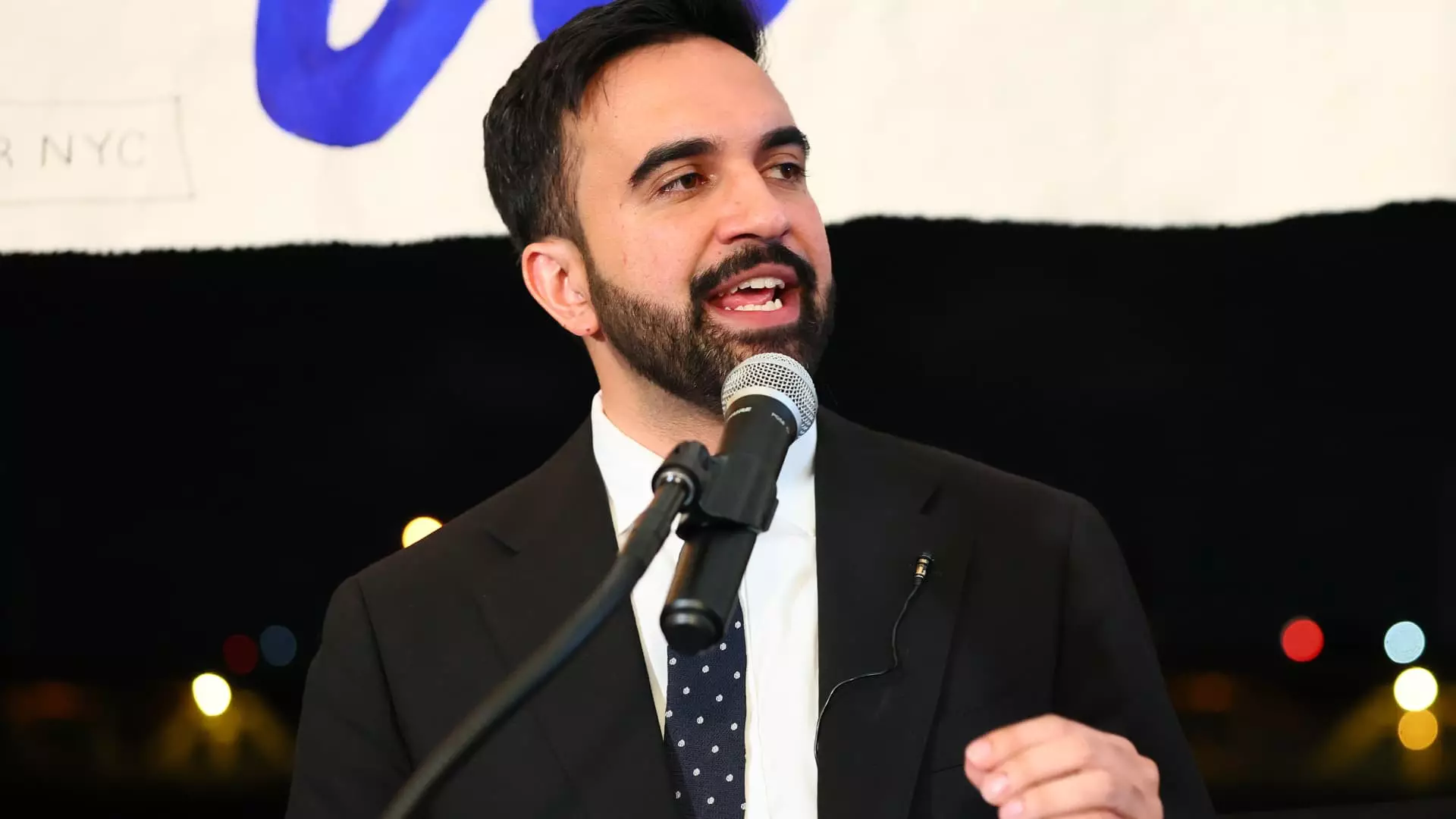The recent primary win of Zohran Mamdani in New York City has sent ripples through the financial markets, most notably resulting in a 6% decline in shares of Flagstar Bank. Mamdani’s staunch advocacy for freezing rent increases in stabilized units raises considerable alarms. It’s crucial to understand that financial institutions like Flagstar thrive on predictability. A sudden shift in the regulatory landscape regarding rents could spell turmoil for banks heavily invested in multi-family housing loans. With an estimated exposure of between $11 billion and $18 billion to rent-regulated properties, the stakes for Flagstar are alarmingly high.
This win is not just a minor political shift but a declaration of intent on managing the economic landscape of New York. Investors are often skittish, and the mere prospect of an overhaul in rent regulations can shake their confidence. Irrespective of whether the freeze materializes or not, the looming possibility is enough to create an atmosphere of uncertainty and skepticism.
Pandering Politics: The Real-Estate Fallout
Mamdani’s campaign mantra of freezing rent increases might resonate well with constituents grappling with the cost of living, but it raises unsettling questions about the real estate market’s future. Real estate has historically been a pillar of the New York economy, and any impediment to its profitability could trigger wider economic repercussions. Analysts have noted that existing rent regulations already hinder price adjustments in line with rising costs, and introducing a rent freeze may exacerbate this inconsistency.
In such a politically charged climate, the mayor’s ability to appoint board members to regulatory agencies further complicates matters. Control now seems to rest upon individuals with little to no experience in financial markets, leading to a potential disconnect between political aspirations and economic realities.
Potential Long-Term Consequences for Investors
While some analysts contend that a short-term rent freeze may be manageable for Flagstar, the fear lies in the specter of prolonged regulatory constraints. This uncertainty could prompt the bank to bolster its loan loss reserves, reducing funds available for lending and investment. This would be a detrimental outcome not only for Flagstar but for the broader banking ecosystem that hinges on the robustness of real estate markets in urban areas.
Moreover, the political climate seems to be tilting toward a paradigm that could reduce financial viability for many operations. A shift toward higher corporate tax rates was also part of Mamdani’s platform—another red flag for investors. A tax hike could lead many businesses to reconsider their future in New York City, thereby stifling economic growth and innovation.
The Analysts’ Divide: Diverging Opinions
Among the financial analysts, opinions remain split. Deutsche Bank’s Bernard von-Gizycki and Morgan Stanley’s Manan Gosalia offer contrasting estimates of exposure to rent regulations. The fact that analysts are unable to reach a consensus on the impact of Mamdani’s policies highlights a troubling inconsistency in how future investments might be evaluated. If experts are divided, what does that mean for the average investor trying to navigate this complex landscape? Stakeholders could be left floundering without a clear strategy amidst swirling speculation and opinion.
Moreover, Barclays analyst Jared Shaw’s assertion that current regulations already cap price hikes below the inflation rate introduces doubt regarding whether Mamdani’s proposals would significantly shift the investment thesis. However, the mere existence of uncertainty can be enough to prompt investors to retreat, precipitating a further dip in stock values.
A Broader Implication on Political Engagement
Ultimately, Mamdani’s candidacy and potential electoral victory transcend the construction of housing regulations. They symbolize a shift in societal demands from fellow New Yorkers—a call for accountability from politicians. The multifaceted impact of his policies extends not just to the financial sector but also embodies the philosophical battle for who controls urban economic destiny: the people or the markets.
In this era of profound social challenge, balancing the goals of economic sustainability with the needs of beleaguered constituents is no small feat. While the primary win positions Mamdani as a probable mayoral favorite, the financial implications of his policies will bear the scrutiny of both voters and investors alike. The uncharted territory of economic management under his potential administration calls for vigilant scrutiny as the situation evolves.

